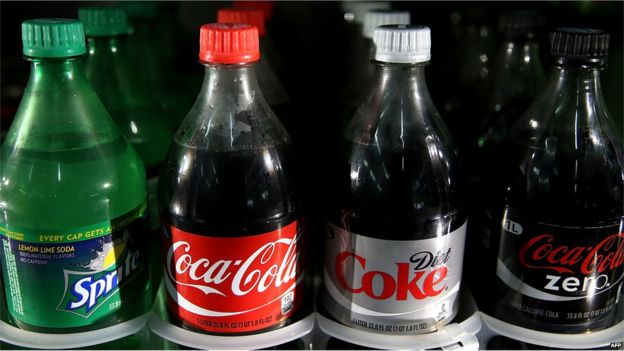South Africa has joined the battle against sugar, becoming the first African country to plan a tax on drinks loaded with the sweet stuff.
That could hurt many here, for whom a supermarket trip is not complete without stocking up on their beloved garish fizzy liquid.
At an average of less than $0.50c (£0.36) for a 330ml can, sweetened drinks are affordable for the vast majority, and have become a regular feature of the weekly diet.
Finance Minister Pravin Gordhan introduced the tax on everything from carbonated soft drinks to flavoured water in February’s budget speech, partly as a way to tackle the country’s bulging budget deficit, but also to deal with people’s bulging waistlines.
South Africa has not been spared as obesity levels have soared around the world in the past couple of decades.
According to a 2014 World Health Organization (WHO) estimate, one in four South Africans are obese.
A 2013 study by the Human Sciences Research Council in Johannesburg pointed the finger at sugar as being one of the possible culprits, saying that one in five South Africans consume an excessive amount of sugar.
The average South African, according to the results from a survey of 25,000 people, now have 17 teaspoons of sugar a day.
And although not the sole culprit, high sugar consumption has been linked to the development of type 2 diabetes and cardiovascular diseases, which all put a strain on the publicly-funded health system.
South Africa’s sugar intake may not be as high as Mexico, 35 teaspoons a day, or the US, 40 teaspoons a day, but it is a cause for concern as the WHO recommends no more than 10 teaspoons be eaten in a day.
The Beverage Association of South Africa (BevSA) has questioned why the government is targeting just drinks rather than the entire processed food industry.
It argues that one food item cannot be blamed for the country’s obesity issues.



Leave a Reply